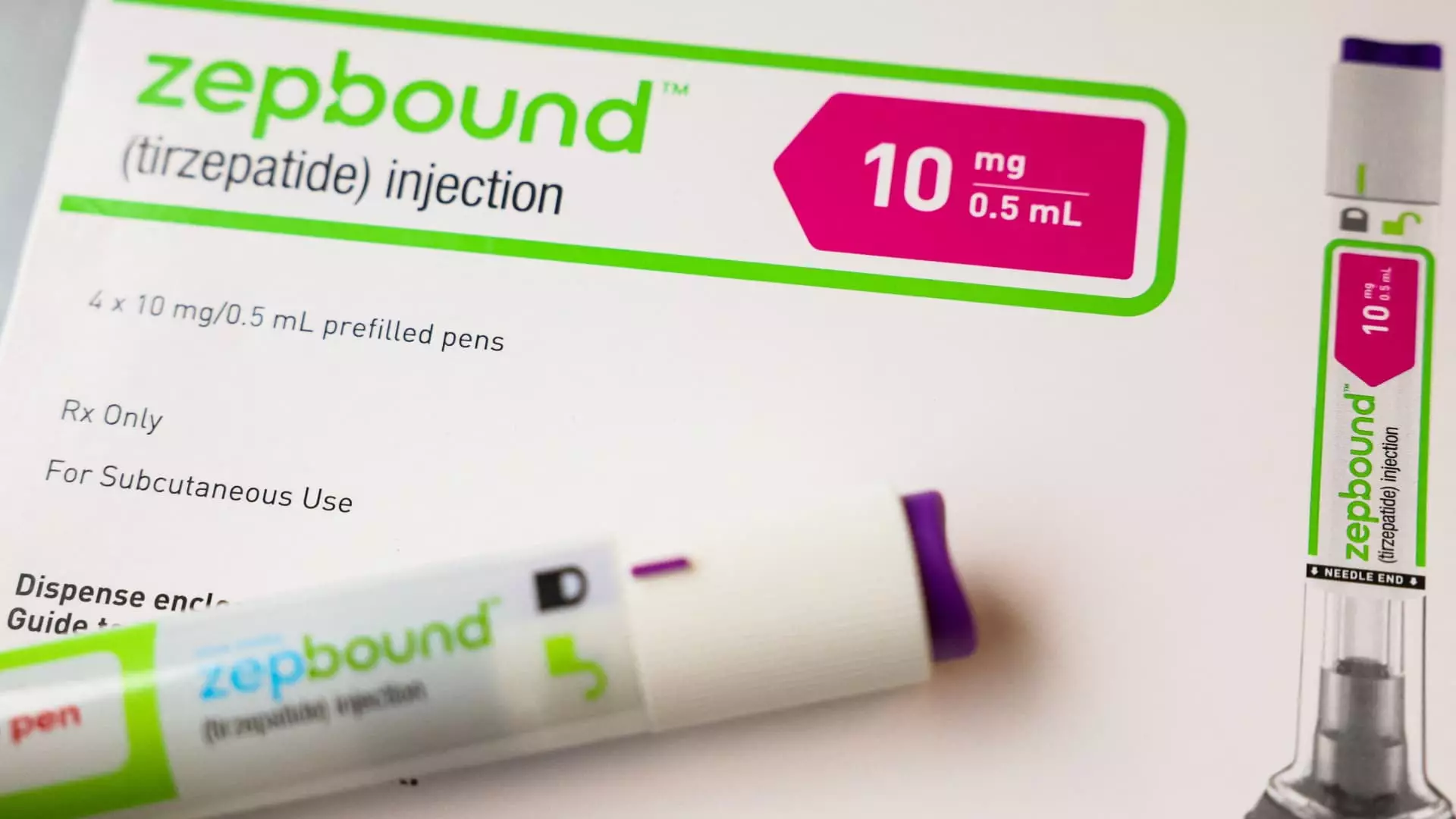Eli Lilly, a prominent player in the pharmaceutical industry, has taken significant strides to reshape the landscape of obesity treatment with the introduction of higher doses of its weight-loss drug, Zepbound. Released in single-dose vials at a reduced price, this initiative is designed to make the medication more accessible to a broad audience, particularly to those who do not have insurance coverage for this critical treatment. By addressing the soaring demand for Zepbound in the U.S., Eli Lilly aims to ensure that eligible patients can benefit from real solutions rather than cheaper, potentially unsafe alternatives.
By launching Zepbound through their direct-to-consumer platform, LillyDirect, Eli Lilly allows patients to purchase higher doses in self-pay vials. This new addition to their offerings targets patients diagnosed with obesity or obstructive sleep apnea—conditions that have recently received recognition for treatment with Zepbound. Patients seeking these higher doses can now do so directly from the manufacturer, a strategic move to eliminate barriers that often prevent access due to high prices or lack of insurance coverage.
The pricing strategy has been inventive yet practical: the introduction of 7.5 milligram and 10 milligram vials priced at $499 initially offers a significant reduction compared to previous autoinjector costs, which hovered around $1,000 per month before coverage. This price transparency signals a shift in how pharmaceutical companies can approach patient access, especially in a healthcare system notorious for its convoluted pricing structures.
The surge in demand for Zepbound has led to a troubling rise in the availability of cheaper, compounded versions of the drug. Patients, frustrated by high prices and limited access to authentic medication, have turned to compounding pharmacies for alternatives. However, compounded medications often lack the rigorous safety, efficacy, and quality assurances of FDA-approved products, raising significant health concerns.
To combat reliance on these unregulated versions, Eli Lilly is not merely competing on price but instead emphasizing the safety and quality of its products. By restoring the supply of Zepbound, the company aims to ensure that individuals do not resort to using unapproved medications that could pose health risks. This proactive stance is crucial, especially as Eli Lilly seeks to maintain trust and credibility in the market amid rising competition.
The conversation regarding obesity treatment is further complicated by Medicare’s current policies, which often do not cover medications for weight management. As stated by Patrik Jonsson, president of Eli Lilly’s diabetes and obesity division, the organization is striving to provide solutions for those most affected by the lack of insurance coverage, particularly the Medicare population. This demographic often finds itself with limited options and higher out-of-pocket costs, reinforcing the necessity of Eli Lilly’s innovative pricing approach.
Jonsson’s hopes for a future where Medicare covers obesity medications reflect broader discussions within healthcare policy. The potential changes in regulations could have a substantial impact, not just for Eli Lilly, but for the entire landscape of obesity treatment in the United States. Advocacy for broader insurance coverage is critical as more patients seek effective treatments for chronic conditions like obesity.
Eli Lilly’s initiatives are part of a larger effort to address the obesity epidemic, which has reached alarming levels in the U.S. This crisis has implications not just for individual health, but it also burdens the healthcare system with escalating costs. By offering alternative options for obtaining Zepbound and reducing the initial barriers to access, Eli Lilly is making noteworthy contributions to improving availability.
The launch of LillyDirect and its partnership with healthcare startups demonstrates a commitment to leveraging technology to enhance patient access and convenience further. Online platforms that facilitate telehealth consultations and home delivery of medications fit within a growing trend of personalized healthcare experiences that meet patients where they are.
As Eli Lilly expands its offerings and lowers prices, the company continues to monitor patient uptake and adjust its strategies. While immediate access to Zepbound through self-pay vials seems promising, the long-term implications of these changes will depend on broader healthcare reforms and ongoing demand. Legislation plays a critical role in shaping how obesity treatments are managed and covered, and Eli Lilly is keenly aware of this interplay.
Eli Lilly’s innovative steps to broaden access to Zepbound signify a pivotal shift in how obesity treatments are approached in the U.S. By reducing costs and enhancing accessibility, the company is not only addressing individual patient needs but also potentially redefining the relationship between pharmaceutical companies, healthcare providers, and patients in the ongoing battle against obesity.

